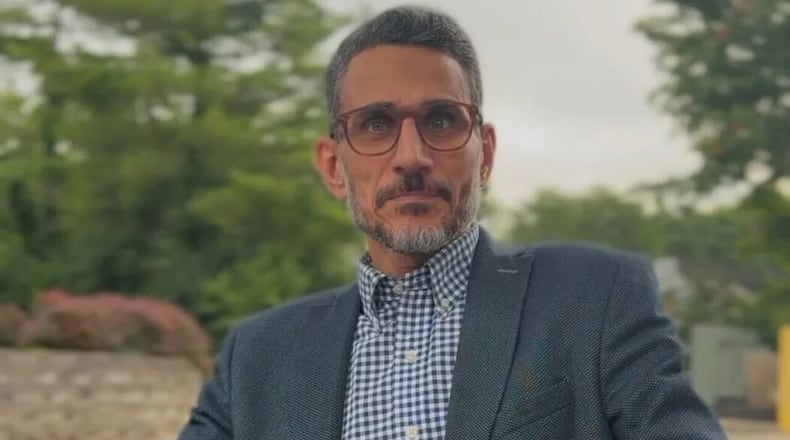“I wanted to be serving the community, and I think this is what the community needs right now,” Soliman said.
The imam was a journalist during the Arab Spring in Egypt, where he says he was targeted for his coverage. That turmoil led him to the United States in 2014, where he lived in Chicago before attempting to take a job in Oregon.
But the government flagged his background, he said, without proof, saying he was part of a terrorist organization.
“The governor of Oregon himself tried to find, and for six months, they could find nothing. And I had to accept Cincinnati Childrens’ offer,” Soliman said.
In July, ICE took Soliman into custody during what his attorneys describe as a routine check-in at the agency’s Blue Ash office. The detention came after his asylum status, granted in 2018, was revoked in December 2024 under the Biden administration.
Soliman’s story drew national attention and sparked protests across Cincinnati, including one that ended with the arrest of roughly a dozen protesters and two journalists. Clergy members throughout the region also protested and held events in support of Soliman.
Now he’s using his platform to push for broader conversations about immigration detention.
“Many of us really don’t think about what happens after ICE,” said one town hall attendee.
While Soliman acknowledges issues with ICE, his biggest complaint centers on conditions at the Butler County Jail.
“My experience with ICE was very different than my experience with the Butler County jail,” Soliman said.
For 73 days, Soliman says he never saw sunlight, never breathed fresh air, and never ate a raw vegetable or fruit.
He wants people to demand better conditions for detainees and more accountability from their elected officials.
“Maybe we can imagine that we don’t have responsibility, that there’s nothing we can do. And yet it’s right here,” one attendee said. “We have political representatives who, you know, there’s very little we can do after we’ve voted. But we can still call them and demand that these things are looked into.”
Soliman is still waiting on his green card and plans to continue traveling around the Tri-State, sharing his story.
About the Author
